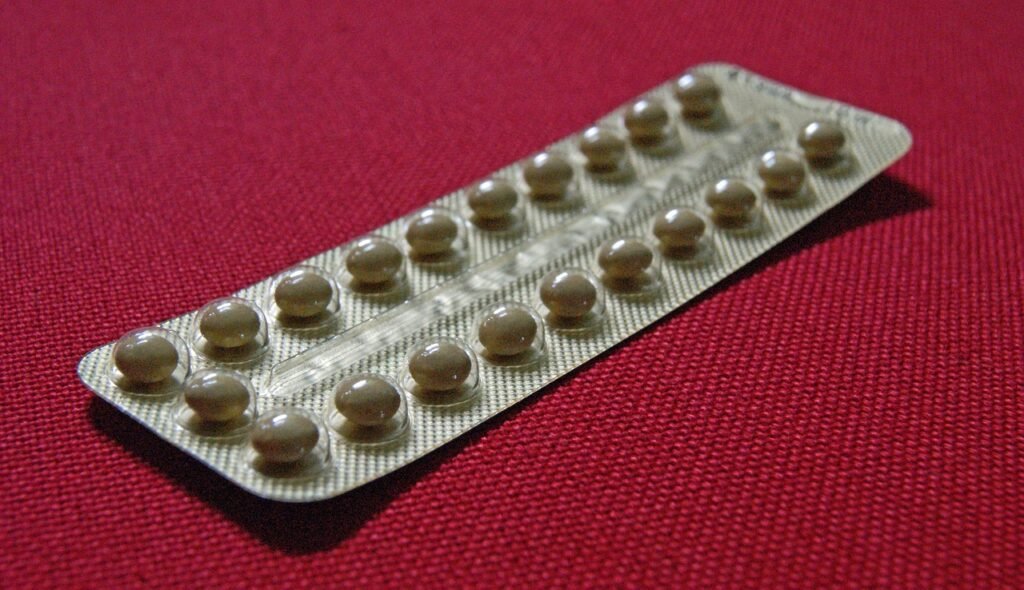Have you ever wondered what causes kidney stones and how to prevent them? In this article, we will explore the fascinating role that hormones play in the formation and prevention of kidney stones. From the intricate interplay between parathyroid hormone and calcium levels to the influence of estrogen and testosterone, you will gain a deeper understanding of how these hormones affect the development of kidney stones. Whether you have experienced the agony of passing a stone or simply want to learn more about this common condition, join us as we uncover the mysteries of kidney stone formation and share invaluable prevention tips.

This image is property of pixabay.com.
Hormones Involved in Kidney Stone Formation
Kidney stone formation is a complex process that can be influenced by various hormones in the body. Understanding the role of these hormones is important in preventing and managing kidney stones. Some of the key hormones involved in kidney stone formation include Parathyroid Hormone (PTH), Calcitonin, Corticosteroids, and Vitamin D.
Parathyroid Hormone (PTH)
PTH is a hormone secreted by the parathyroid glands, which are located in the neck. This hormone plays a vital role in regulating calcium levels in the body. PTH increases the levels of calcium in the blood by stimulating the release of calcium from bones and enhancing calcium absorption from the gastrointestinal tract. However, excessive PTH levels can lead to an imbalance in calcium levels, which contributes to the formation of kidney stones.
Calcitonin
Calcitonin is another hormone involved in calcium regulation, but its actions are opposite to those of PTH. This hormone is secreted by the thyroid gland and helps to reduce the levels of calcium in the blood. Calcitonin inhibits bone resorption, reducing the release of calcium into the bloodstream. Although calcitonin’s role in kidney stone formation is not as well understood as PTH, it may have some influence on calcium metabolism, which could potentially impact kidney stone formation.
Corticosteroids
Corticosteroids are a type of hormone that are produced naturally by the adrenal glands or can be taken as medication. These hormones have various functions in the body, including regulating immune responses and inflammation. However, corticosteroids can also affect calcium metabolism and increase the risk of kidney stone formation. High levels of corticosteroids can lead to increased urinary calcium excretion, a factor that contributes to the development of kidney stones.
Vitamin D
Vitamin D is a unique hormone because it can be synthesized in the body when the skin is exposed to sunlight. It is also found in certain foods and can be taken as a supplement. Vitamin D plays a crucial role in maintaining calcium balance in the body by facilitating the absorption of calcium from the intestine. However, excessive vitamin D supplementation or certain medical conditions can lead to elevated calcium levels in the blood, which increases the risk of kidney stone formation.
How Hormones Contribute to Kidney Stone Formation
The hormones mentioned above can contribute to kidney stone formation through several mechanisms. Understanding these mechanisms is essential in preventing and managing kidney stones.
Increased Calcium Absorption
Excessive levels of PTH and vitamin D can lead to increased calcium absorption from the intestine. This increased absorption causes higher levels of calcium to be present in the urine, promoting the formation of calcium-based kidney stones. Additionally, corticosteroids can alter calcium metabolism and increase urinary calcium excretion, further enhancing the risk of kidney stone formation.
Increased Oxalate Production
Oxalate is a substance found in many foods and is also produced by the liver. High levels of oxalate in the urine can lead to the formation of calcium oxalate stones, which are the most common type of kidney stones. PTH and corticosteroids can contribute to increased oxalate production, thereby increasing the risk of kidney stone formation.
Altered Urine pH
The pH of urine plays a crucial role in kidney stone formation. Changes in urine pH can affect the solubility of various substances, including calcium and oxalate. PTH can alter urine pH by reducing citrate levels, which normally inhibit stone formation. This change in pH can promote the precipitation of calcium and oxalate crystals, facilitating the development of kidney stones.
Reduced Citrate Levels
Citrate is a substance that helps to prevent the formation of kidney stones by inhibiting crystal formation and growth. PTH, when present in excess, can decrease citrate levels in the urine, increasing the risk of stone formation. Low levels of citrate decrease the ability of urine to prevent the crystallization of calcium and oxalate, leading to the formation of kidney stones.
The Role of Parathyroid Hormone (PTH)
PTH plays a critical role in calcium regulation and has a significant impact on kidney stone formation. Understanding the effects of PTH on calcium metabolism is essential in comprehending its role in kidney stone formation.
Effects of PTH on Calcium Regulation
PTH promotes an increase in blood calcium levels through various mechanisms. It stimulates the release of calcium from bones, enhances calcium absorption from the intestine, and reduces calcium excretion through the kidneys. While these mechanisms play a crucial role in maintaining calcium homeostasis, excessive levels of PTH can disrupt the balance and contribute to kidney stone formation.
Hyperparathyroidism and Calcium Absorption
Hyperparathyroidism is a medical condition characterized by excessive secretion of PTH by the parathyroid glands. This condition can lead to increased calcium absorption from the intestines, resulting in higher levels of calcium in the urine. The increased urinary calcium levels promote the formation of calcium-based kidney stones, such as calcium oxalate stones.
Calcium-Based Kidney Stones and PTH
Calcium-based kidney stones, which include calcium oxalate and calcium phosphate stones, are the most common type of kidney stones. Excessive levels of PTH can contribute to the formation of these stones by increasing urinary calcium levels, altering urine pH, reducing citrate levels, and promoting the formation of crystals. Managing PTH levels and addressing underlying conditions such as hyperparathyroidism is crucial in preventing and managing calcium-based kidney stones.
The Role of Calcitonin
Calcitonin, although less understood than PTH, also plays a role in calcium metabolism and potentially impacts kidney stone formation.
Calcitonin’s Inhibitory Effects on Bone Resorption
Calcitonin helps to regulate calcium levels by inhibiting bone resorption, which is the process of calcium release from bone tissue. By inhibiting bone resorption, calcitonin reduces the release of calcium into the bloodstream, thereby maintaining calcium homeostasis.
Impact of Calcitonin on Calcium Homeostasis
Calcitonin and PTH have opposing effects on calcium regulation, creating a dynamic balance in the body. While PTH promotes calcium release from bones and enhances calcium absorption from the intestines, calcitonin inhibits bone resorption and reduces calcium levels in the blood. This balance is crucial in maintaining calcium homeostasis and preventing the formation of calcium-based kidney stones.
Calcitonin and Kidney Stone Formation
The direct impact of calcitonin on kidney stone formation is not yet fully understood. However, as calcitonin helps regulate calcium levels, it may indirectly influence the risk of kidney stone formation. Imbalances in calcitonin levels or disruptions in calcium homeostasis could potentially contribute to the development of kidney stones. Further research is needed to fully elucidate the role of calcitonin in kidney stone formation.

This image is property of pixabay.com.
The Influence of Corticosteroids
Corticosteroids have various effects on the body, including their impact on calcium metabolism and the risk of kidney stone formation.
Corticosteroids and Calcium Metabolism
Corticosteroids can affect calcium metabolism by influencing the absorption, excretion, and balance of calcium in the body. These hormones can increase urinary calcium excretion, which contributes to the formation of calcium-based kidney stones. Additionally, corticosteroids can alter the metabolism of other substances, such as oxalate, further increasing the risk of stone formation.
Hypercalciuria and Corticosteroid Use
Hypercalciuria, or high levels of calcium in the urine, is a major risk factor for kidney stone formation. Corticosteroid use can lead to increased urinary calcium excretion, resulting in hypercalciuria. This increased excretion of calcium promotes the formation of calcium-based kidney stones and highlights the importance of monitoring and managing calcium metabolism in individuals taking corticosteroids.
Corticosteroids and Risk of Kidney Stones
The use of corticosteroids is associated with an increased risk of kidney stone formation. The precise mechanisms by which corticosteroids contribute to stone formation are not fully understood, but the impact on calcium metabolism is believed to play a significant role. It is important for individuals taking corticosteroids to be aware of the potential increased risk and to work closely with their healthcare providers to mitigate this risk.
The Impact of Vitamin D
Vitamin D plays a crucial role in calcium absorption and overall bone health. However, excessive levels of vitamin D can have negative effects on calcium metabolism and contribute to the formation of kidney stones.
Vitamin D Metabolism and Calcium Absorption
Vitamin D is converted into its active form in the body, which is essential for calcium absorption from the intestine. Adequate levels of vitamin D are necessary for maintaining bone health and preventing conditions such as osteoporosis. However, excessive vitamin D supplementation or medical conditions that cause elevated vitamin D levels can lead to increased calcium absorption, resulting in higher urinary calcium excretion and an increased risk of kidney stone formation.
Hypercalcemia and Vitamin D Supplementation
Hypercalcemia, or high levels of calcium in the blood, can occur with excessive vitamin D supplementation. This elevation in calcium levels can increase the risk of kidney stone formation. It is important to carefully monitor vitamin D levels and to follow appropriate supplementation guidelines to prevent this potential side effect.
Vitamin D and Kidney Stone Formation
Elevated levels of circulating vitamin D can contribute to the formation of kidney stones by increasing calcium absorption and urinary calcium excretion. The excess calcium excreted in the urine can form crystals and stones in the kidneys. It is crucial for individuals with elevated vitamin D levels, whether due to supplementation or underlying medical conditions, to be aware of their increased risk and to take appropriate measures to prevent kidney stone formation.

This image is property of pixabay.com.
Hormonal Interactions in Kidney Stone Formation
The hormones involved in kidney stone formation do not act independently. Instead, they interact with each other, creating a complex network of hormonal regulation that can impact the risk of stone formation.
PTH and Vitamin D Interaction
PTH and vitamin D have a close relationship in calcium metabolism. PTH stimulates the conversion of vitamin D into its active form, which enhances calcium absorption from the intestine. Conversely, vitamin D inhibits the secretion of PTH, helping to maintain calcium homeostasis. Imbalances in the interaction between PTH and vitamin D can disrupt calcium regulation and contribute to the formation of kidney stones.
PTH and Calcitonin Interaction
PTH and calcitonin have opposing effects on calcium metabolism, creating a delicate balance in the body. While PTH promotes calcium release from bones and enhances calcium absorption, calcitonin inhibits bone resorption and reduces calcium levels. Disruptions in the balance between these hormones can tilt the scales towards excess calcium absorption and contribute to kidney stone formation.
Corticosteroids and Hormonal Balance
Corticosteroids can influence hormonal balance by altering the secretion and activity of various hormones, including PTH and vitamin D. These alterations can disrupt the delicate equilibrium needed for proper calcium regulation and increase the risk of kidney stone formation. It is important to monitor and manage hormonal imbalances in individuals using corticosteroids to minimize the risk of stone formation.
Overall Hormonal Imbalance
Kidney stone formation can be influenced by the overall hormonal balance in the body. An imbalance in the levels and activities of various hormones involved in calcium regulation can disrupt the delicate equilibrium needed to prevent stone formation. Paying attention to hormonal imbalances and taking steps to restore balance can help reduce the risk of kidney stone formation.
Prevention Strategies through Hormonal Regulation
Preventing kidney stone formation involves managing hormone levels and promoting hormonal regulation. Several strategies can be employed to achieve this goal.
Dietary Modifications to Regulate Hormones
One way to regulate hormones involved in kidney stone formation is through dietary modifications. For example, reducing sodium intake can help lower urinary calcium excretion, reducing the risk of stone formation. Additionally, adopting a balanced diet that includes adequate calcium, while avoiding excessive intake, can help maintain hormonal balance and prevent stone formation.
Treatment of Hyperparathyroidism
Hyperparathyroidism, characterized by excessive PTH secretion, can significantly increase the risk of kidney stone formation. Treating underlying hyperparathyroidism, often through surgical removal of the affected parathyroid glands, can help restore normal hormonal balance and prevent stone formation.
Calcitonin and Corticosteroid Therapy Considerations
When considering calcitonin or corticosteroid therapy, it is important to evaluate the potential impact on calcium metabolism and the risk of kidney stone formation. Close monitoring of calcium levels and urinary calcium excretion is crucial in individuals receiving these therapies. Adjustments in medication dosage or considering alternative treatments may be necessary to mitigate the risk of stone formation.
Monitoring Vitamin D Levels
Regular monitoring of vitamin D levels is essential in individuals receiving supplementation or those with medical conditions that affect vitamin D metabolism. Ensuring that vitamin D levels are within the optimal range can help prevent the risk of hypercalcemia and calcium-based kidney stone formation.
Lifestyle Modifications to Promote Kidney Health
In addition to hormonal regulation, adopting certain lifestyle modifications can have a significant impact on kidney health and the prevention of kidney stones.
Maintaining Adequate Hydration
Staying properly hydrated is crucial in preventing kidney stone formation. Drinking an adequate amount of water helps dilute urine and prevents the concentration of substances that can form stones. Individuals prone to kidney stone formation should aim to drink enough fluids to produce at least 2 liters of urine per day.
Adopting a Balanced Diet
A balanced diet, rich in fruits, vegetables, whole grains, and lean proteins, promotes overall health and helps prevent kidney stone formation. In particular, diets low in sodium and animal proteins can help reduce the risk of stone formation. Additionally, consuming foods high in citrate, such as citrus fruits, can enhance the inhibitory effects of citrate on stone formation.
Regular Physical Activity
Engaging in regular physical activity benefits overall health and can help prevent kidney stone formation. Exercise promotes proper calcium metabolism and can help reduce the risk of stone formation. However, individuals should be cautious with vigorous exercise and ensure adequate hydration, particularly in hot environments, to prevent dehydration and potential stone formation.
Limiting Sodium and Oxalate Intake
Reducing sodium intake can help lower urinary calcium excretion and decrease the risk of stone formation. Additionally, limiting foods high in oxalate, such as spinach, rhubarb, and beets, can help reduce the risk of calcium oxalate stone formation. It is important to note that some individuals may need to restrict oxalate intake more strictly based on specific medical conditions or stone composition.
Conclusion
The role of hormones in kidney stone formation is significant and complex. Hormones such as PTH, calcitonin, corticosteroids, and vitamin D can influence calcium metabolism and contribute to the risk of stone formation. Understanding the effects of these hormones and the interactions between them is essential in preventing and managing kidney stones. By promoting hormonal regulation through dietary modifications, addressing hormone imbalances, and adopting healthy lifestyle habits, individuals can reduce their risk of kidney stone formation. Continued research in this field will further our understanding of the impact of hormones on kidney stone formation and pave the way for novel treatment approaches in the future.

